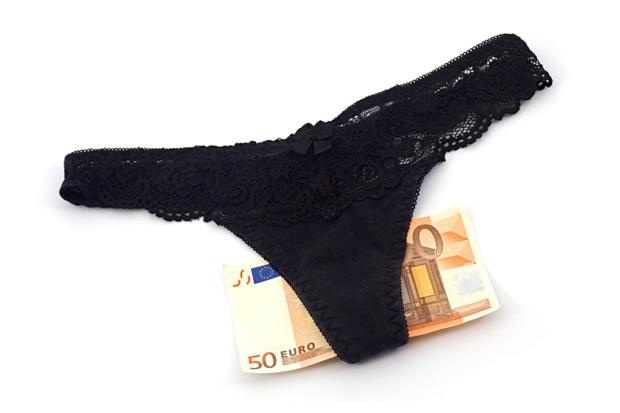Step One: Businessman criticises independence. In this case, Les Montgomery, chief executive of the Highland Spring mineral water brand. On Sunday, he told PA: ‘Businesses are fed up. The Scottish Government should be getting on with the job they are there to do. Focusing on employment, investment, those kinds of things. Independence isn’t the job that the Scottish Government is supposed to be doing.’
Step Two: Scottish Government calls businessman. After being told of Montgomery’s remarks, SNP economy minister Keith Brown instructed officials to contact Highland Spring to see if they would like to ‘discuss them further’. Highland Spring confirmed that it was approached by the Scottish Government but wouldn’t say if discussions involved ministers or just civil servants.
Step Three: Businessman withdraws criticism of independence. On Tuesday, Highland Spring issued an Orwellian apology in which it claimed Montgomery, who explicitly talked about independence in his original interview, ‘did not mention indyref2’. And he hadn’t, in much the same way that you might denounce Theresa May’s ‘plan for EU withdrawal’ then point out you never actually used the word ‘Brexit’.
Step Four: Businessman swears Step Two had nothing to do with Step Three. As questions began to surface about ministers’ role in Highland Spring’s decision to bottle it, Montgomery put out a second apology — this one apologising to anyone who misunderstood the first apology: ‘Our explanation to those who may have taken personal offence at recent comments was made independently to address any concerns raised, and categorically not as the result of any influence from, or conversations with, the Scottish Government with whom we have an open, positive and collaborative relationship.’ The only thing missing was a Polaroid of a dishevelled Montgomery holding up that morning’s edition of the New York Times.
If you think this suggests an unhealthy need on the part of the SNP to silence critics, you’re going to love their earlier work. What is now apparent is that there is another step intrinsic to Nationalist bullying of sceptics and dissenters and that is the boycott. It is a tactic increasingly familiar to individuals and businesses who speak out against the SNP or its constitutional agenda.
If Highland Spring did come under pressure from St Andrew’s House, it was in parallel with a burgeoning campaign from cybernats to punish the company at the checkout. The campaign logo — they have a logo! — features the Highland Spring insignia and the legend ‘Unionist water – I will never drink another drop’. Celebrity separatist Eddi Reader, a folk singer popular among Nats, announced she was removing Highland Spring from her touring rider. I wasn’t alive when Bruce Springsteen refused to play in apartheid South Africa but I got to see Eddi Reader take a stand against overpriced yuppie juice.
Bottled water is not the first victim of Scotland’s constitutional culture wars. I keep a running tally of everyone being boycotted by Scottish nationalists. They include, but are by no means limited to: RBS, Standard Life, Tunnock’s Teacakes, B&Q, the Daily Record, the House of Bruar, the BBC, Waitrose, Mackie’s ice cream,Usdaw, Sainsbury’s, John Lewis, Marks and Spencer, Clydesdale Bank, Morrisons, the Scotsman, the Co-op, and, I kid you not, Harry Potter.
In his final days as First Minister, Alex Salmond opened a new branch of Lidl in retaliation at Asda, which had warned of rising prices after independence. Three years on from the referendum, SNP MSP John Mason still refuses to buy his euros from Barrhead Travel, whose founder criticised separation in 2014. There is even a campaign, Remember The Companies That Scared Scotland, whose 20,000 Facebook followers have withdrawn their custom from a lengthy list of unpatriotic retailers.
Few can rival the Scottish nationalists’ lust for economic sanctions against those who displease them. If the UN really wants rid of Assad, they should tell the cybernats he questions the viability of a currency union after independence.
Patriotic boycotting puts a tartan braid on a tactic more familiar to American audiences. In the US, where the cultural is at least as political as the personal, the secular left and Christian right rouse rabbles almost daily against an anointed hate figure. The non plus ultra came in 2012 when fast-food chain Chick-fil-A found itself at the centre of a pitch battle on gay marriage. LGBT groups organised a boycott over the company’s donations to socially conservative institutions. Christian activists countered with a ‘buycott’ in which they ate at the restaurants to show their support for Chick-fil-A’s moral stance. Staff were treated to bizarre scenes of new customers lining up to buy a chicken burger and former customers lining up to shout at them for doing so.
The SNP has been effective at convincing a hardcore third of Scots that they are under constant siege — from Westminster economic brutalism, Scotland-hating Tories, and a biased media. All this roiling anger was useful in the referendum and with elections to win. Now that Nicola Sturgeon has been forced to delay indyref2, the animus her party stirred has to be channelled somewhere. Better that it be against Highland Spring than the First Minister who has led the SNP and their cause into the shallows of public opinion. That can only last so long, though. When you trade in identity politics you eventually learn that grievance can be slaked but never quenched.
Stephen Daisley is a columnist for the Scottish Daily Mail.







Comments